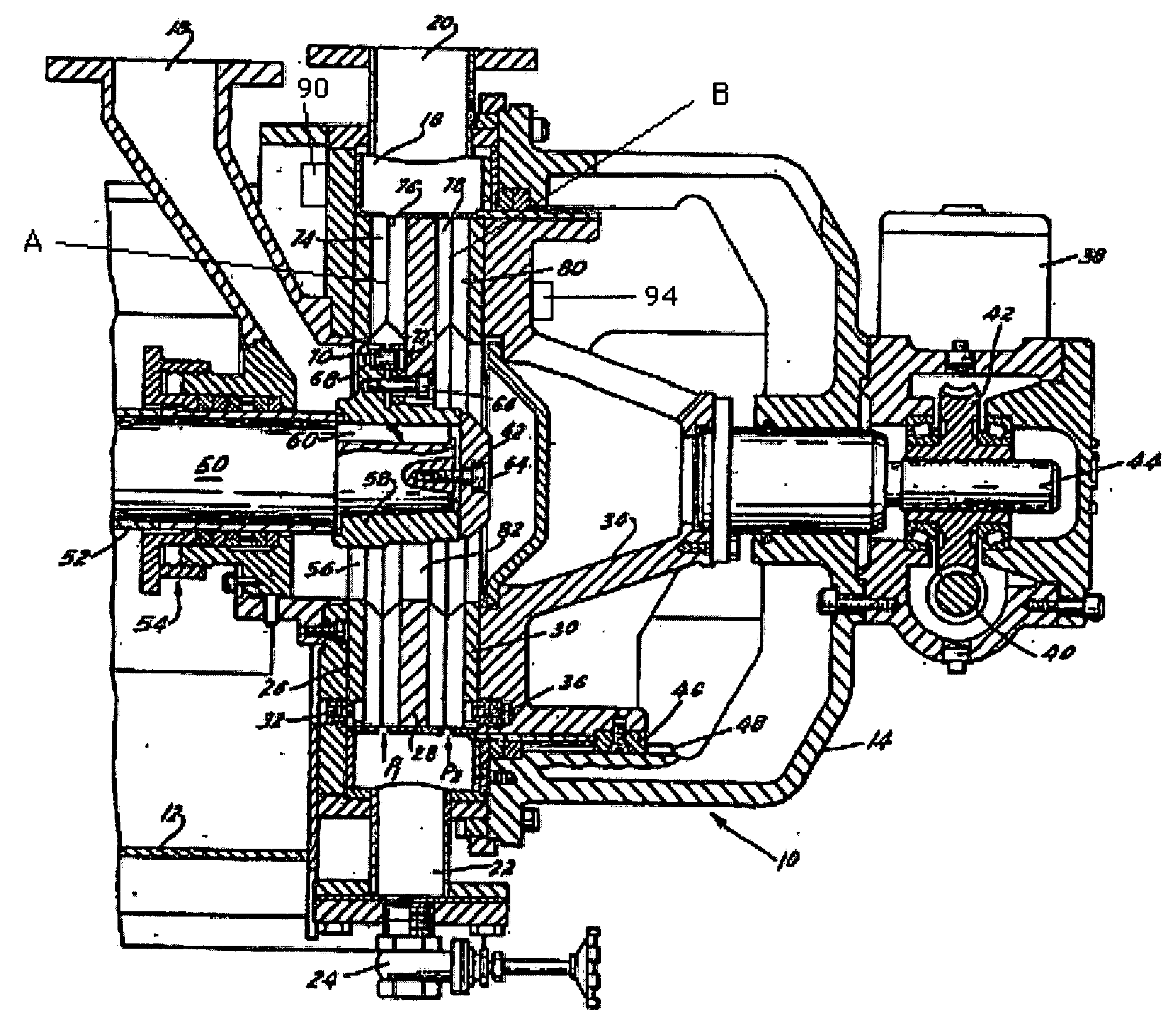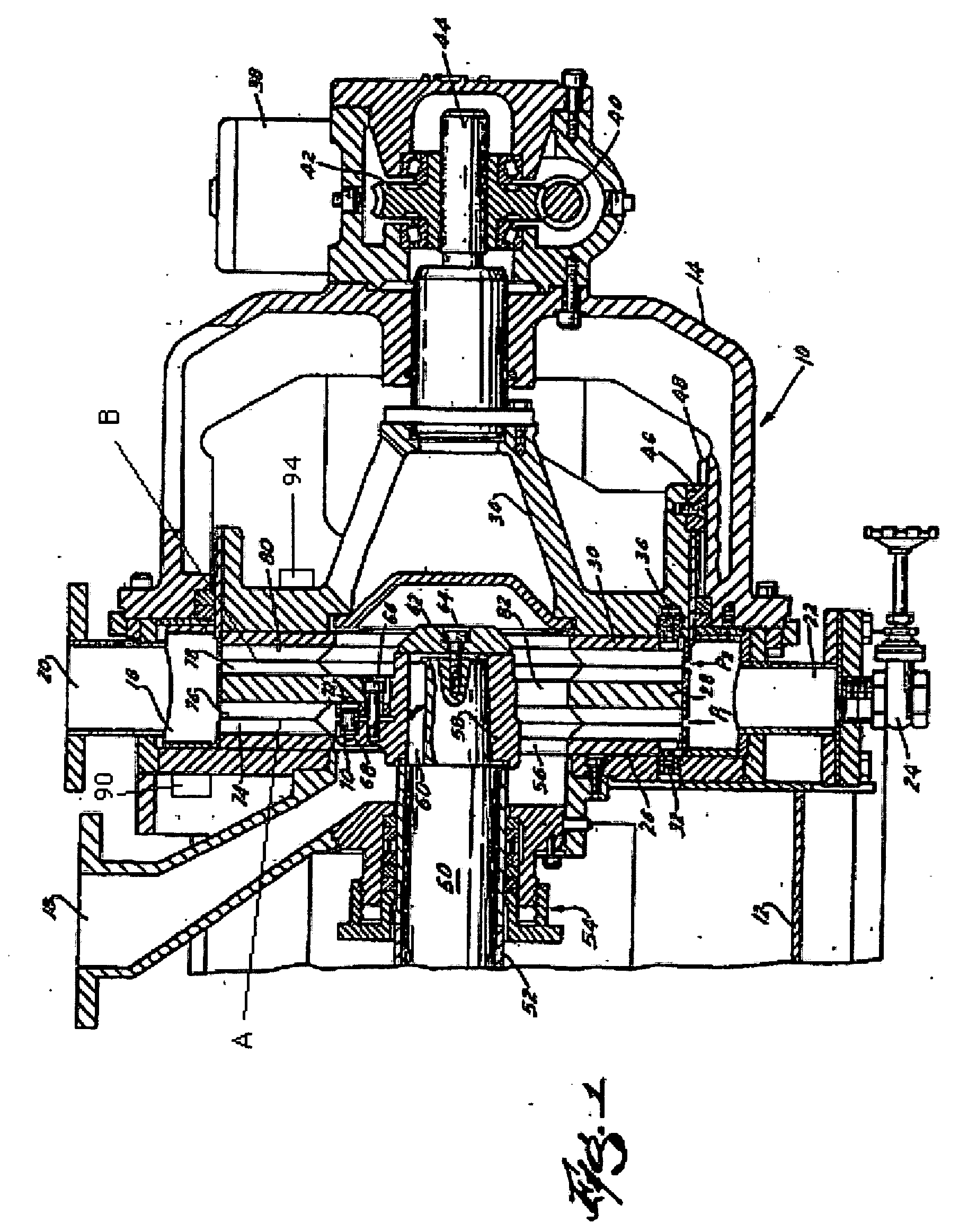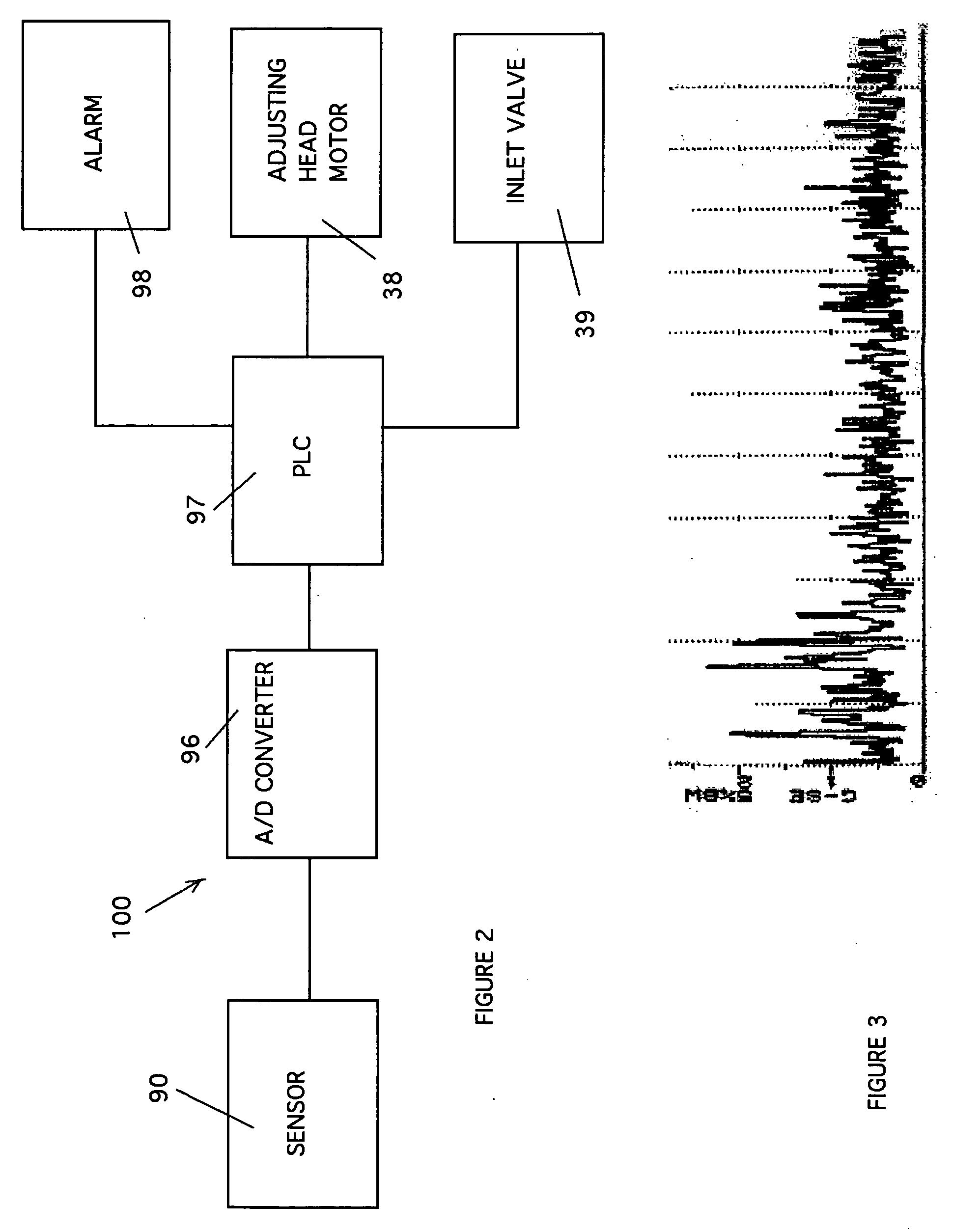Refining member clash control method
a technology of clash control and refiner, which is applied in the field of refiners, can solve the problems of difficult detection of changes in refiner performance, failure to produce a detectable change in sensor output usable, and insufficient prior art approaches referred to above, so as to reduce the chance of plate clashing, reduce the risk and reduce the effect of affecting the quality of the produ
- Summary
- Abstract
- Description
- Claims
- Application Information
AI Technical Summary
Benefits of technology
Problems solved by technology
Method used
Image
Examples
Embodiment Construction
[0018] Referring first to FIG. 1, there is shown a refiner having a housing 10 including several bolted-together sections, two of which are shown at 12 and 14. The housing defines a stock chamber 16 and has an inlet 18 for admission of pulp, e.g., from the outlet of a pump (not shown) or an inlet valve 39 (shown schematically in FIG. 2), a first outlet 20 for evacuation of refined pulp, at least in part under the action of centrifugal force, and a second outlet 22 that is normally closed by a suitable valve 24. The outlet 20 extends upwardly and the outlet 22 extends downwardly. The valve 24 is opened when the attendants wish to drain the liquid carrier for large pulp pieces or the like from the chamber 16.
[0019] The chamber 16 accommodates three refining members 26, 28, 30, here shown as coaxial discs having identical outer diameters. In other embodiments (not shown), only two discs can be used, or two back-to-back discs can be used instead of the single disc 28. In still other em...
PUM
| Property | Measurement | Unit |
|---|---|---|
| strength potential | aaaaa | aaaaa |
| paper strength properties | aaaaa | aaaaa |
| distance | aaaaa | aaaaa |
Abstract
Description
Claims
Application Information
 Login to View More
Login to View More - R&D
- Intellectual Property
- Life Sciences
- Materials
- Tech Scout
- Unparalleled Data Quality
- Higher Quality Content
- 60% Fewer Hallucinations
Browse by: Latest US Patents, China's latest patents, Technical Efficacy Thesaurus, Application Domain, Technology Topic, Popular Technical Reports.
© 2025 PatSnap. All rights reserved.Legal|Privacy policy|Modern Slavery Act Transparency Statement|Sitemap|About US| Contact US: help@patsnap.com



